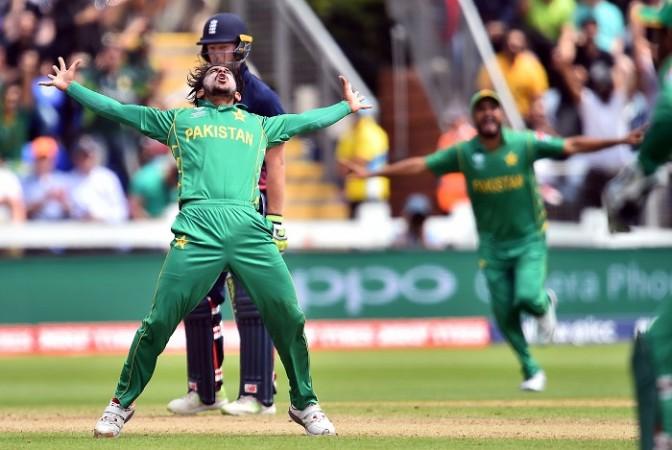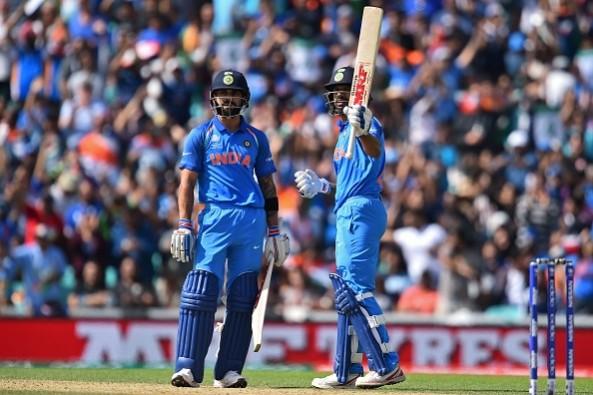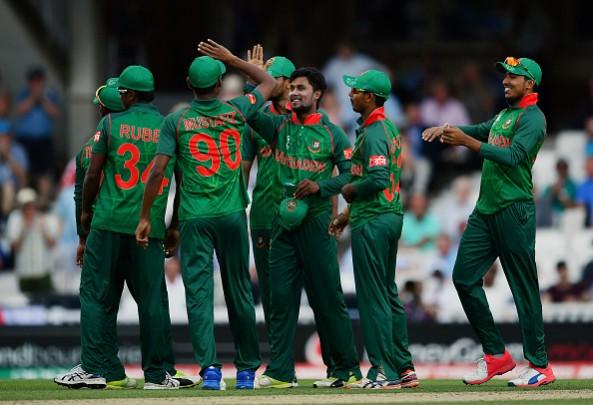
After New Zealand, Australia and South Africa, the English also bowed out of the Champions Trophy 2017 on Wednesday, June 14. Former world champions Pakistan, who were looking hapless even after their first game, handed them a crushing eight-wicket defeat to reach the finals to be played at the Oval on June 18. Pakistan's victory also means that the last three teams remaining in the prestigious tournament are all from South Asia – the other two being India and Bangladesh.
The appearance of three Asian teams among the last four of a major cricket tournament can now raise a very pertinent question: Why will not the headquarters of the International Cricket Council be based in South Asia now?
In 2005, the ICC headquarters were moved out from London to Dubai to keep pace with time for the Asian sides had started emerging as the real power centres of cricket, eclipsing England and Australia – the original superpowers of cricket that ruled in the late 19th and almost the entire 20th century.
The white's dominance started waning after India bagged their first WC in 1983
Even when the Caribbeans had ruled the game on the field, the organisational and commercial successes of the sport were mainly driven by the English and the Australians and South Asia's first rise happened in 1983 when Kapil Dev's India bagged the World Cup. The voice became stronger when Pakistan won it in 1992 and Sri Lanka in 1996, defeating England and Australia, respectively.
Between 1999 and 2011, it was Australia versus South Asia in World Cup title showdowns and just like Kapil's Devils had stopped the Windies' juggernaut in 1983 final, Mahendra Singh Dhoni's India became the first team to win the tournament in 2011 after a prolonged domination by the Australians for a decade. But when Australia won the crown back in 2015, drubbing India in the semifinals and beating trans-Tasman rivals New Zealand in the finals, it seemed that the Asian sides are yet to dominate beyond Asia.

But with three Asian teams, including the youngest Test nation Bangladesh, now vying for the Champions Trophy in England in 2017, that doubt perhaps has also been cleared. Each of the white powerhouses was shown the door by an Asian team.
Bangladesh packed off Kiwis; India knocked out SA; Pak saw England exit
While the Bangladeshis played brilliantly to send the Kiwis out of the fray, India kicked out South Africa and Pakistan showed England who's the boss, just like in 1992. Australia were a bit unlucky to have lost out but luck is a genuine parcel of the life of all those who play cricket. Isn't it? And even away from all the happenings in the Champions Trophy, another South Asian team – Afghanistan – was doing wonders in the Western Hemisphere.
Even Afghanistan did not give West Indies an easy life
Though they lost the T20 series to the reigning champions, the Afghanistanis stunned the cricketing world in the first one-day international, bundling out the former world champions for a paltry 149, thanks to a 7 for 18 by Rashid Khan.
The West Indians pulled it back in the next game but not easily. The Afghans also had their opportunity to eclipse a white team in the 2015 World Cup, their debut one, when they beat Scotland by 1 wicket in a thriller.
Thus, South Asia's cricketing abilities have improved over the years, much better compared to its political acumen, and there is no reason why the ICC today shouldn't be based out of Mumbai or Bengaluru. Among the South Asian teams, India looks the perfect host to the ICC headquarters for it is again the first among the frontrunners in world cricket today – thanks to its evergreen cricket industry which also includes the Indian Premier League as well as its numerous world titles, be it in the 50 overs, 20 overs or Under-19 versions.
The Indian cricket board is a hegemon in world cricket today. It calls unilateral shots in bilateral series and even doesn't spare the ICC. The IPL has made India the focal point of world cricket. Even without holding world cups, the tournament sees cricketers from across the world coming together for a fiercely competitive tournament.

The Sri Lankans, Pakistanis and Bangladeshis might not have succeeded so much as the Indians but they have nonetheless played their parts in boosting South Asia's stature in world cricket. Pakistan's performance in the ongoing edition of the Champions Trophy has been particularly special. Bangladesh, on the other hand, raised the bar in another major tournament after making the quarters of the 2015 World Cup. Sri Lanka, though could not make it to the last four, but their impressive chase against India showed their mettle.
The whites will be worried
The white cricketing nations will be worried. For, not just the revenue model has changed hands but even the quality of teams like Australia and South Africa has been on the wane. England, the best-performing white cricketing nation at the moment, had a bad day in office against Pakistan but they might regret today the decision to partition South Asia. Had there been no trifurcation of the sub-continent by the former colonial masters, chances could still be there for the whites to qualify for the finals.
But at the moment, it's only about India, Pakistan and Bangladesh.









